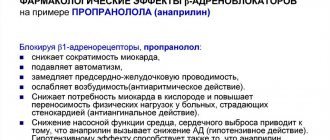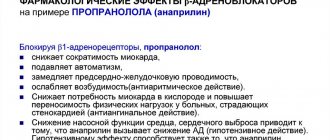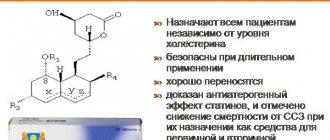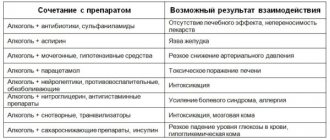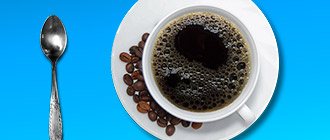Modern man is often exposed to stress. Anxiety, insomnia, depression are factors that have a negative impact on the quality of life. In medicine, there is a separate group of drugs that have a sedative effect, which help to relax and distract from worries. Among them, Valerian and Corvalol are well known to many.
Both drugs have a sedative and antispasmodic effect and improve sleep. This article describes in detail the principle of their action on the body, composition and possible side effects that occur as a result of improper treatment. After reviewing the information provided, everyone will be able to determine for themselves which is better, Corvalol or Valerian.
General information about Corvalol
The drug is characterized by a strong sedative effect. The components of the medication promote vasodilation. Corvalol is used in medicine as a sedative for central nervous system disorders.
The medicine is available in two forms: tablets and drops, which is very convenient to use. Drops can be purchased in bottles with different dosages (10-100 ml). The tablets are round in shape. Pills are produced in cardboard packs with blisters, each blister contains ten tablets.
The composition depends on the form of release (Table 1).
| Tablets (1 pc.) | Drops (1 ml) | ||
| Basic | Auxiliary | Basic | Auxiliary |
| Peppermint oil (0.58 mg) | Microcrystalline cellulose (10.5 mg) | Ethyl ester of α-bromoiso-valeric acid (20 mg) | Purified water |
| Phenobarbital (7.5 mg) | Lactose monohydrate (43.77 mg) | Phenobarbital (18.25 mg) | 95% ethanol |
| Ethyl ester of α-bromoisovaleric acid (8 mg) | Magnesium stearate (0.9 mg) | Peppermint oil | |
| Potato starch (13 mg) | |||
Despite its wide range of applications, the medicine can have a negative effect on the body. Therefore, before taking it, it is necessary to consult a specialist.
General information about Valerian
The medicine, like Corvalol, is characterized by a sedative and vasodilating effect. There are several forms of release on sale:
- dry herbs for decoctions and tinctures;
- tablets (yellow, brown or green);
- alcohol tincture.
Medicinal properties of valerian
Each tablet contains 200 mg of the active ingredient – medicinal valerian root. The following additional components are used: primellose, magnesium carbonate, potato starch, calcium stearate, gelatin. For 1 liter of tincture there are 200 mg of crushed rhizome of the plant, which is infused in 70% ethyl alcohol.
Although this drug is developed on herbal components, it is also a medicine and, if the recommendations regarding administration are not followed, it can lead to negative reactions.
Patient reviews
Olga, 53 years old, Izhevsk: “I always carry a mixture of valerian and Corvalol tincture in my purse. This is the best remedy in any nervous, anxious or conflict situation. Add 15-20 drops to a glass of water or a piece of sugar - and after a quarter of an hour, nervousness subsides, your heart beats more evenly, and it becomes easier to think.”
Natalya, 38 years old, Sterlitamak: “I work in such a stressful job that not a single day goes by without conflict or stress. For a long time in the evening I could not relax, I constantly lashed out at my husband. A friend advised me to try a mixture of tinctures of valerian, motherwort and Corvalol. I started drinking every evening and noticed that I became much calmer, I fell asleep quickly, and slept soundly. The husband, having appreciated the result, also began to take this remedy, and now we are solving all the accumulated problems on a positive wave, without quarrels or showdowns.”
The principle of action of the drugs
In medicine, Valerian is one of the herbal drugs that have a weak or moderate sedative effect, depending on the dosage.
The sedative effect is caused by the influence of essential oils and alkaloids (valerine and choline). The effect of taking the medication occurs slowly (after about three hours) and is characterized by stability.
The active components have a choleretic and antispasmodic effect. Their use has a positive effect on the secretory functions of the gastrointestinal tract, reduces heart palpitations and promotes vasodilation. With regular use, the effectiveness of the medicine increases noticeably.
Corvalol has a moderate vasodilating and sedative effect. The medicine also has an antispasmodic effect, which is achieved as a result of irritation of receptors located in the oral cavity and nasopharynx. The drug reduces activity in the central parts of the somatic nervous system and the load on the walls of blood vessels.
The medication contains phenobarbital. It has a calming effect and tranquilizing effect. And peppermint oil helps eliminate metabolic symptoms. In addition, this component has antiseptic properties.
Indications and contraindications
Corvalol is prescribed for disorders of the central nervous system. Also indications for use are:
- vegetative-vascular dystonia;
- neurosis;
- spasms of coronary vessels or tachycardia;
- hypertension. The drug acts as one of the components of a complex of therapeutic measures;
- sleep disorders.
Since valerian has a similar principle of action on the body, the indications are also the same. In addition, the medicine helps in the fight against:
- hysterical states;
- spasms of the gastrointestinal tract;
- migraines;
- a state of overexcitation as a result of prolonged excitement.
Corvalol can be prescribed to children for gas formation, sleep disturbances, increased irritability, and heart rhythm disturbances. Treatment is carried out under the supervision of a doctor. Giving children medication on their own is strictly prohibited.
Despite the positive effect on the nervous system and the patient’s condition as a whole, Corvalol has a number of contraindications:
- Individual intolerance or allergy to one of the components of the medication.
- Bromine intolerance.
- Myocardial infarction.
- Epilepsy.
- Liver dysfunction.
The medication should be prescribed with extreme caution to patients suffering from alcohol, drug or drug addiction.
The components may have a negative effect on the fetus during pregnancy. Therefore, you should not use the medication during this period, regardless of the trimester. If it is necessary to use Corvalol during breastfeeding, experts recommend temporarily switching the child to formula milk so as not to harm his fragile body.
Valerian tincture is not recommended in case of hypersensitivity to the components of the drug and in children from birth to one year.
During pregnancy, taking the drug is allowed in case of urgent need and with the permission of the attending physician.
The tablet form of the drug is not prescribed:
- with deficiency of lactase, isomaltase, sucrase;
- in the first trimester of pregnancy;
- children under three years old.
Reviews from doctors
Olga, general practitioner: “When it becomes necessary to prescribe a sedative for patients with neurosis, anxiety, or sleep disorders, I recommend them a mixture of these drops with a good sedative effect. They are especially effective for older people for whom strong psychotropic drugs are contraindicated. I always notice an improvement in my condition, my sleep is normalized, my fears and anxieties disappear.”
Maxim, psychotherapist: “To calm people in a state of panic, with anxiety disorders, nervous and aggressive, I recommend them simple drops, which in some cases are more effective than complex medications. Clients quickly calm down and come to an adequate state.”
Concomitant use
Patients are often interested in what effect Corvalol and Valerian together have on the body and how to combine them correctly. Corvalol contains phenobarbital. When mixing this substance with alcohol-based drugs, the mutual effectiveness of the medications increases. In reasonable doses, the drugs can be taken together, as they enhance each other’s effects.
There is a recipe for an effective tincture, according to which four main components are combined: hawthorn, Valerian, Corvalol, motherwort. Each component has a reinforcing effect on all other components. This kind of “cocktail” helps relieve nervousness and cope with insomnia.
Rules for administration and dosage
According to the standard instructions for using Valerian extract in tablet form, a single dose can be one or two tablets. It is advisable to take them after meals three times a day. If necessary, the dose can be increased after consulting a specialist.
The attending physician conducts an examination and determines how long the medicine should be taken. On average, the course of treatment lasts two to three weeks, and in some cases it is repeated.
According to the instructions, Valerian tincture should be taken 20-30 drops three times a day. It needs to be diluted a little with water and washed down after taking it. It can also be prescribed to children older than one year. The treatment regimen is drawn up by the doctor. Most often, the number of drops is identical to the age of the baby (three years - three drops). Since the tincture contains alcohol, it must be mixed with water.
Corvalol for oral administration must be diluted with water (50 ml). Some patients drop the medicine onto a small piece of sugar. The dose prescribed in the instructions is 15-30 drops. With pronounced attacks of tachycardia or spasm of the coronary vessels, it can increase to 40-45 drops.
The drug in tablet form is taken according to the table. two/three times per knock, but no more than six times a day.
A specialist should adjust the treatment regimen and change the dosage. Since improper use of medications can lead to the development of complications and side effects.
Description of Valerian
The sedative drug Valerian is produced in the form of a solution and tablets by Medica, Bulgaria. The action of the product is due to the content of isovaleric acid and essential oil. When taking Valerian, there is a decrease in the excitability of the nervous system. The medicine has an antispasmodic and sedative effect. The latter manifests itself slowly but steadily. It is available without a doctor's prescription and is very popular.
Valerian enhances the effect of antispasmodics and sedatives. Has a moderate hypotensive effect with long-term use. As a medicine, valerian is used in several forms - tincture, extract, herbal raw materials.
The active ingredient in the tablets is dry extract of valerian root 30 mg. The oral solution additionally contains alcohol.
Research and effectiveness
According to studies, at a dosage below 100 mg, valerian extract does not have a therapeutic effect. It is advisable to take a dosage of 300-1000 mg per dose. A randomized trial involving patients who had sleep problems showed a positive effect of valerian extract at a dosage of 3,000 per day. Objective and subjective improvements in sleep parameters were recorded.
Sources:
- Donath F. et al. (2000) Critical evaluation of the effect of valerian extract on sleep structure and sleep quality. Pharmacopsychiatry. - No. 33.
- Ukrainian medical journal Chasopis, No. 3(71) V-VI 2009.
Contraindications
Valerian is contraindicated for the following conditions and diseases:
- intolerance to substances in the composition;
- allergy to plants of the Honeysuckle family;
- depressive disorder, depression of central nervous system function.
Valerian is used with caution in severe liver diseases, including those that were previously suffered. There is no safety data during pregnancy, so its use during pregnancy is not recommended.
Side effects
Undesirable side effects are possible from the nervous system, immunity and gastrointestinal tract:
- slow reaction, drowsiness, depression, decreased performance, general weakness;
- nausea;
- hypersensitivity reactions, hyperemia, itching, anaphylactic shock, urticaria, angioedema.
In case of overdose, symptoms such as tremor, weakness, drowsiness, headache, dilated pupils, chest discomfort, hearing and vision impairment occur. If the dosage increases significantly, you should temporarily stop taking Valerian and consult a doctor. For treatment, gastric lavage is performed and enterosorbents are used.
Dosage
Valerian is taken orally after meals. The tablets are taken whole, washed down with plenty of liquid. For adults and children over 12 years of age, the dosage is 30-60 mg up to 4 times. The duration of use of the sedative medication is determined individually.
Valerian can enhance the effect of sedatives, analgesics, antispasmodics, hypnotics, and alcoholic beverages.
Who is it suitable for?
Valerian extract in the form of tablets and tinctures is indicated for mild neuroses, sleep disorders, and increased excitability of the nervous system. Valerian can be taken by people with insomnia or stress. The drug also helps with mild diseases of the cardiovascular system.
Which remedy is more effective?
In the fight against any pathologies, you want to use effective means that do not cause harm to the entire body. Therefore, many are interested in what is better at calming – Corvalol or Valerian.
Since Corvalol contains barbiturates, its effect is stronger than that of herbal medicines. It is also characterized by rapid action (approximately 20-30 minutes).
Valerian has a slow sedative effect. It helps the nervous system relax gently and gradually. The effect occurs a few hours after administration. The drug does not have a negative effect. Side effects
Despite the fact that Valerian contains plant components, if taken incorrectly, even it causes negative reactions in the body. Most often they appear in the form of:
- lethargy;
- fatigue;
- drowsiness;
- decreased performance.
Corvalol is a drug, so it has a more impressive list of side effects:
- bradycardia, arterial hypotension;
- allergic rashes;
- nausea, diarrhea, constipation;
- dizziness;
- attacks of headache;
- labored breathing.
When using the drug for a long period of time, negative reactions may occur. For example, rhinitis, depression, central nervous system depression, conjunctivitis or a feeling of confusion.
Side effects of Corvalol and Valerian
When using medications, side symptoms may develop. This process is accompanied by:
- tachycardia;
- decreased blood pressure;
- nausea, vomiting, diarrhea and epigastric pain;
- headaches;
- lethargy;
- drowsiness;
- decreased performance;
- respiratory dysfunction;
- conjunctivitis;
- itching, redness, rashes on the skin.
Taking Coravalol may be accompanied by tachycardia.
With an overdose or prolonged use, a depressive state and depression of the nervous system develops.
Compatibility and analogues
The active substance Corvalol helps accelerate the metabolism of antiviral, hormonal, and anticonvulsant drugs. Valerian enhances the effectiveness of antispasmodics, sedatives or hypnotics.
The most popular substitutes for Valerian are herbal preparations. For example, Hawthorn, Barboval, Valecard, Motherwort. The medications have an identical mechanism of action.
To replace Corvalol, experts recommend:
- Valocordin.
- Korvaltab.
- Novo-Passit.
- Persen.
It is necessary to take analogue medications only after consulting a doctor.

